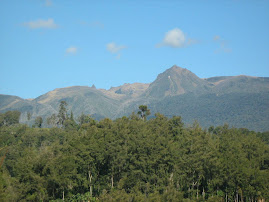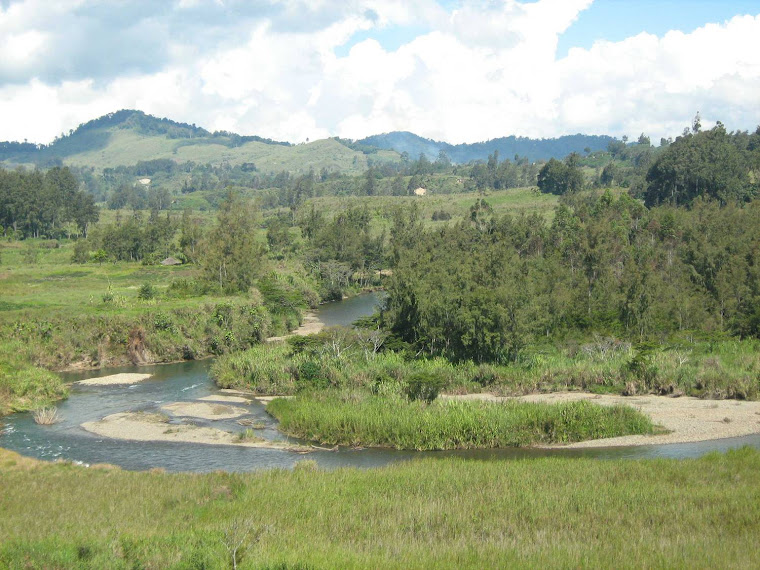This article was published by the Sunday Chronicle, Port Moresby under my column, "Asia Pacific Perspective: China +"
..................
By Mathew Yakai in China
THERE are two directions in the movement of the Chinese in PNG: one from East and Southeast Asian countries to PNG, and the other from PNG to other countries in Oceania, such as Australia, New Zealand, Solomon Islands and Guam etc.
Also, Chinese immigrants in PNG frequently return to their countries of origin and come back to PNG again.
This type of circular migration characterizes the Chinese strategy and practice in this region.
One attraction for the Chinese immigrants to PNG and the Pacific is that there are economic opportunities.
Before contact was established with Westerners who imposed colonial rule, New Guinea had not developed a market economy.
New Guinean people had conducted trade based on traditional exchange networks, but not commercial activities based on a modern money economy.
Throughout the colonial period, the commercial sector of the economy in New Guinea was dominated by Westerners like German and Australian merchants and firms.
Chinese pioneers in New Guinea were plantation workers and artisans, who became small traders and managers of plantations, and played a role as middlemen in transactions between articulate locals and Europeans.
The economical niches for foreigners still exist in the post-colonial era. Even after independence, there are still areas in the economy which are not well- developed.
Australian merchants, firms and capital have left PNG since independence. Their departure has left open the economic niches once dominated by them.
Independence has also brought about a shortage of talent and administrative personnel such as officers and clerks.
These are some of the reasons why immigrants are drawn from Asia including Chinese New comers.
As a matter of fact, some of the Chinese entrepreneurs say that PNG offers a lot of opportunities for business and that it is easier to start new businesses in PNG than in their countries of origin.
One Chinese man from People’s Republic of China (PRC) says starting new businesses in China is harder because the competition is fierce there.
He agrees that doing business in PNG is not so easy because of the existence of certain barriers such as “reserved business” and the lack of a safe environment, but he can start his own business and does not have to work under others.
Indeed, some of the Chinese entrepreneurs who have succeeded in establishing their own businesses in PNG would agree with him.
The value of the kina, the PNG currency, was at one time the other attractive factor for the Chinese to come to work in PNG.
Many Chinese interviewed by Ichikawa who live or once lived in PNG mention that profit can be made from the exchange rate of the currency.
The PNG government set a high exchange rate for the kina to protect the national economy.
Until the early 1990s, one kina was worth about US one dollar.
One Malaysian Chinese, who has returned to Malaysia, said that he could get a higher income when he worked in PNG because he was paid in kina.
Not only were the wages in PNG higher than those in Malaysia, he also profited by exchanging the kina for foreign currencies.
Some of the Chinese immigrants, especially new comers, have succeeded in persuading their acquaintances and relatives to join them in PNG on the strength of the economic opportunities.
The entrepreneurship of the Chinese is one of the main reason contributing to the Chinese immigration and settlement in PNG.
But not every Chinese immigrant is inclined to live in PNG permanently. Some seek opportunities to leave and re-migrate to other countries. There are push factors, as well as pull factors.
Social instability is one of the most serious problems in the cities, not only for the Chinese but all the inhabitants.
The influx of people into cities like Port Moresby is quite common and the population of city dwellers is rising.
People from rural areas come to seek jobs and economic opportunities. But economic development in PNG is still sluggish and there is the problem of unemployment.
Although unemployment does not necessarily result in the breakdown of law and order, some unemployed city dwellers do get involved in crime and become “rascals,” the term used in PNG for those committing serious offenses like robbery, murder, and the disturbance of public order.
Chinese residents and their properties are also attacked by the rascals.
An unstable environment is a deterrent to foreign investment, leading to further unemployment and a rise in the crime rate.
It is a vicious circle. Such a situation has caused many Chinese living in the cities to leave PNG for other countries.
Besides the problem of security, the devaluation of the kina and subsequently a depressed economy is another important push factor.
In 1994, the kina was devalued when the high exchange rate of the currency became unsustainable, leading to the fall of the kina against most foreign currencies.
In 2003, one kina fell to the level of roughly US 30 cents. It was no longer possible to profit on the exchange rates.
These socio-economic changes have dampened the Chinese motivation to stay in PNG.
Before that, Chinese migrants had been willing to put up with the restrictions on foreigners and problems of security.
But the economic recession is a big blow to business. The lack of a safe environment has also adversely affected the Chinese in particular.
Some Chinese residents are anxious about their status as members of an ethnic minority which may attract attacks or other forms of violence from rascals and political rioters.
One local born Chinese man in Port Moresby describes his life as just like “doing business in jail.”
Because of the frequency of robbery, most of the houses and shops in the cities are surrounded by fences or barbed wire.
Some shops in Port Moresby hire security guards or keep watch dogs for protection.
This man was born in PNG and had run his own business in Port Moresby for a few decades. He decided to sell his shops after they were broken into. He also sold two of his properties and prepared to migrate to Australia.
The concern at the deterioration of socio-economic conditions is shared by Chinese new comers as well.
One woman from PRC working in Port Moresby is worried not only about her business, but also the possible fallout on the Chinese as an ethnic minority in the country.
She is afraid that anti- Chinese movements like those in Indonesia and Honiara may take place targeting the Chinese as a minority group engaged in business at a time when the PNG economy is depressed.
She could continue running her business in PNG, but says she cannot draw out a long-term plan because of those problems.
The instability of the PNG economy and society has affected the Chinese life style. Some Chinese are looking for alternative places to live. They have become reluctant exiles in a sense.
The Chinese in PNG have thus put both settlement and emigration strategies into practice.
In the late 1950s, Chinese old comers were allowed to acquire Australian citizenship which enabled them to go and stay in Australia.
They had also tended to go to Australia for higher education in the colonial period, largely because PNG did not have enough higher educational institutions.
Education was hence an important issue affecting their decisions relating to migration.
In the colonial era, Chinese students would return to and work in PNG after their graduation. But this changed after PNG attained independence.
Increasing numbers of Chinese students began to stay on in Australia even after graduation. The other members of their families in PNG would go to Australia to join them.
Citizenship in Australia led to the decision to migrate as a strategic practice, thus creating the transnational social space.
Like the old comers, some of the new comers also have strategies of migration.
The recent Chinese immigrants often go back and forth between PNG and their countries of origin.
Many Chinese new comers arrive in PNG as employees of companies, and do not necessarily come to stay permanently.
They will leave the country according to the terms of their contracts, or as a result of their own decisions.
The improvement in international transport also facilitates their frequent traveling out of and back to PNG.
Their status as transmigrant characterizes the Chinese new comers in contemporary PNG, and enhances the mobility of the Chinese community.
There are also many new comers who want to re-migrate to third countries in particular Australia, instead of going back to their countries of origin.
Some of them had intended to migrate to Australia in the first place, but came to PNG only because of its proximity to Australia; it was difficult for them to migrate to Australia directly.
Others want to re-migrate to other oceanic countries such as New Zealand and Guam.
For them, PNG is both a destination and a stepping stone for further migration.
This type of transnational re-migration is not easy to put into practice. It involves high costs and the need for a visa.
Most of the Chinese New comers cannot go to other countries as immigrants and they have to resort to strategies of settlement, if they do not wish to return to their countries of origin.
Settlement and remigration are two strategies open to them; the choice of either one is dependent on the conditions faced by the individual.
Since the colonial period, the migration pattern of Chinese in PNG has changed continuously.
Chinese society in PNG has changed from being a community of male sojourners with hopes of going back to China, to one made up of men and women with intentions to stay for various lengths of time in the country.
Intermarriage with local people, reunification with members of the family from China, and the increase of local born children made the Chinese community more settled.
However, since the eve of the independence, New socio- economic changes in PNG have made the Chinese more mobile, and once again, into sojourners.
Note: Last part of this series will continue the following Sunday. E-mail the writer on m_yakai@hotmail.com or phone 15116988560 for queries. This column acknowledges Tetsu Ichikawa for his contribution.
American movie include Fijians as cast and crew
7 years ago









No comments:
Post a Comment